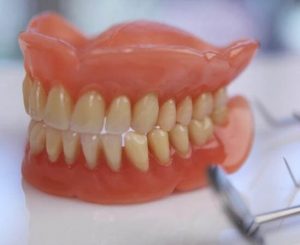 07 Oct 2024
07 Oct 2024
Tooth replacement
As we age, many people believe that losing teeth is simply part of the process. While tooth loss can occur due to factors like decay, gum disease, or fractures, it’s often linked to neglect rather than age itself.
At our DENTAL LIFELINE CLINIC, we’ve seen numerous patients maintain healthy teeth well into their 80s. It’s a common misconception that aging inevitably leads to tooth loss.
However, for those who do experience multiple missing teeth, the consequences can be significant. Loss of teeth impacts chewing efficiency, making meals less enjoyable and leading to habits like swallowing larger food chunks. This can increase the risk of choking and contribute to poor nutrition.

Moreover, tooth loss often triggers bone resorption, which can result in diminished facial support, sagging skin, and for some, a decline in self-esteem. It’s essential to prioritize dental health at any age to maintain both function and confidence.
Exploring Tooth Replacement Options for Seniors
Many older adults live without teeth, mistakenly believing it’s an inevitable part of aging. At DENTAL LIFELINE CLINIC, we want to dispel this myth and highlight the various options available to help seniors enjoy their retirement years fully.
Tooth Replacement Options
Tooth replacement solutions can generally be categorized into removable and fixed options:
1. Removable Options
– Dentures (available in acrylic, cobalt chrome, and flexible materials)
2. Fixed Option
– Bridges (Fixed Partial Dentures)
– Dental Implants
When we consults for replacement options for missing teeth at our DENTAL LIFELINE tricity best CLINIC , the patient is presented with ALL options available to him/her, with the pros and cons properly explained. We also discuss costs and treatment timelines, enabling patients to make informed decisions about their care. This process is collaborative, allowing patients to actively participate in their treatment choices.
Removable Option: Dentures
Are Dentures Outdated?
Contrary to popular belief, dentures are not relics of the past. When crafted correctly, they can significantly enhance functionality.
Acrylic Dentures
Acrylic dentures are fully plastic and tend to be slightly thicker for added strength. Their main advantages include:
– Repairable: They can be easily repaired if damaged.
– Temporary Use: They serve as effective temporary dentures during gum treatments or when further tooth extractions are anticipated, ensuring the patient is never without teeth.
When considering denture options, it’s essential to weigh the benefits and limitations of each type to find the best fit for your specific needs.

Exploring Fixed Tooth Replacement Options: Bridges and Implants
1. Dental Bridge (Fixed Partial Denture)
A dental bridge is a permanent solution that utilizes neighboring teeth for support. It’s securely bonded in place, but proper cleaning is essential to maintain the health of the adjacent teeth (abutments) and reduce the risk of decay and gum disease.
- Advantages:
– Quick Treatment:Only two visits are needed to complete the procedure, and most patients find it comfortable.
Disadvantages:
– Invasiveness: The process involves reshaping the neighboring teeth to accommodate crowns that anchor the bridge, which connects to the missing tooth or teeth (known as pontics).
– Stability Limitations: Bridges are typically stable for up to 2-3 pontics, and the health of the adjacent teeth is crucial. A wider span can compromise stability, much like a bridge that becomes too flexible when stretched too far.
Bridges can be constructed from various materials, including full ceramic, porcelain, or metal. Discussing these options with your dentist will help determine the best choice for your needs.

2. Dental Implants
Dental implants offer another fixed option, anchoring directly into the jawbone using a titanium post. This approach is often seen as the ideal replacement for a missing tooth, as it mimics the natural root structure.
Process:
– The titanium fixture replaces the missing root, and a crown (made from titanium, gold, or ceramic) is placed on top, restoring the tooth above the gum line.

Conclusion:
Every individual has unique dental needs, and the best way to determine the most suitable options for your loved ones is to consult a professional dentist. Living with missing teeth is not a necessity for the elderly; there are effective solutions available to help maintain their quality of life.
